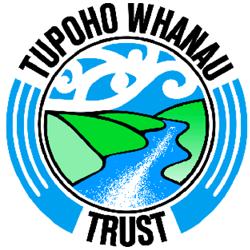
Improving Participation, Retention and Progression of Māori Tertiary Learners in the Whanganui Region
Status
Completed: 2 June 2009
Project Details
A project, completed in 2009, to investigate how two Private Training Establishments (PTEs) could improve the participation, retention and progression of Māori Tertiary Learners in the Whanganui Region. A collaboration of Whanganui Learning Centre Trust and Tupoho Whanau Trust.
Aims:
The project aimed to investigate how two Private Training Establishments could work together to:
- develop co-joint and/or complementary programming to enhance the participation of learners, particularly Māori, and more specifically, Tangata Whenua, of the Whanganui region
- share their knowledge and experience to enhance foundation education and recognise broader concepts of literacy as described and discussed in the Whanganui Iwi Education Plan 2005.
Methodology:
The project methodology involved:
- a collaborative approach which was central to the study
- commitment to grounded participatory research methods by both the project partners
- an action research activity involving reconnaissance; refining the research question; engaging in a first cycle of an action research process; consultation with stakeholders, coupled with a literature survey, and the setting up of pilot projects.
Team

Gail Harrison
Project Leader
Whanganui Learning Centre Trust
George Marshall
Tupoho Whānau Trust
Aroha Beckham
Tupoho Whānau TrustStatus
Funding
$10,000.00 (excl GST)
Key Findings
The key findings from the project included:
- During the project period the partners achieved the following key results. Working together, they: shared knowledge and experience which enhanced foundation education in their communities; examined development priorities; developed and initiated co-joint and complementary programming; demonstrated that collaborative action could lead to improved outcomes for Māori and non-Māori; identified and planned future initiatives and programming to continue beyond the period of the pilot project.
- The project partners found that: they adhered to a common kaupapa; they could develop a relationship based on partnership principles; their skills were distinct with complementary strengths that would enable the development of collaborative and complimentary programming; while working together for learner benefit they could maintain the necessary autonomy and confidentiality required.
- There were benefits in engaging in forward planning and implementing joint programming, which included: engaging in joint professional development; sharing tutors to provide professional development and training adult literacy tutors; sharing resources and developing other resources to meet the specific needs of foundation learners; developing the knowledge to advance new projects and new ways of working with learners; determining that on-going evaluation of programming initiatives would be beneficial in determining their success, or shortcomings.
- An added strength of the collaboration was the project partners’ common interest in tracking learners to determine the enablers and disablers for foundation learners in advancing their vocational goals.
Key Recommendations
The key recommendations from the project included:
Benefits for the organisations | The project benefited both parties and the cohorts of learners engaged in the process in the organisations. These benefits will most likely continue to accrue over the next 12 months.
Consultation and development | Time spent in initial consultation and development is critical. Support at both a managerial and governance level was vital to the success of the project.
Common value base | A common value base was determined which, in the view of the project partners, was a critical element of success.
Relationship between the PTEs | The relationship between the organisations respected partnership principles, and the need for autonomy and confidentiality around emerging business opportunities for each PTE.
Collaborative action | Collaborative action was not limited to the two PTEs. Others were pivotal in the process of enabling and improving student participation, retention and progression; most notably, the local Iwi Educational Authority (Te Puna Mātauranga o Whanganui).
Formal evaluation framework | Improvement in learner participation, retention and progression were noted, but were small due to the specific focus and limited nature of the project. Impacts on learners and learning progress were examined but, a formal evaluation was not conducted. An ideal follow-up would be to develop a formal evaluation framework to capture qualitative and quantitative outcomes for all involved. Formal evaluation would require outside support by way of an external reviewer, and funding and/ or resources to support the process.
A research report prepared by Gail Harrison, George Marshall and Aroha Beckham.
(PDF, 1.1 MB, 27-pages).
- 2 June 2009